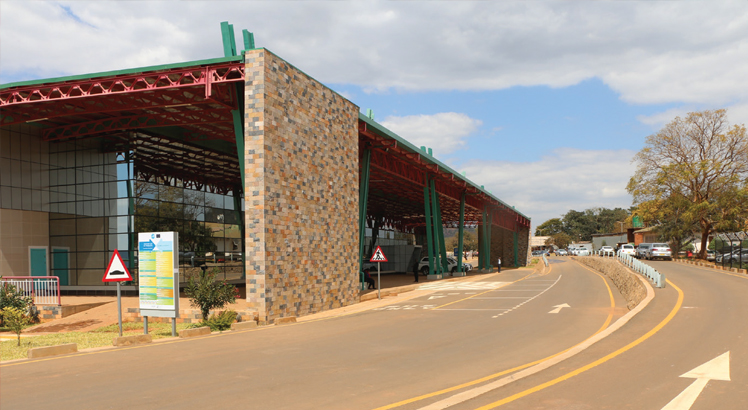One-stop border boosts revenue by 55%—MRA
Revenue collection at the Mchinji-Mwami Border has gone up 55 percent since the commissioning of the one-stop-border post, but an MRA official and transporters say more needs to be done to clear some inefficiencies.
In an interview with Business Review on Monday, Malawi Revenue Authority (MRA) Mchinji-Mwami Border station manager Tapiwa Mzunga said since the one-stop border became operational in November last year, the volume of goods passing through has also increased.

She said in terms of revenue collection, they have moved from collecting between K1.8 billion and K2 billion per annum to about K3.1 billion.
“The border has also opened up to passenger buses from South Africa, which was not the case before,” she said.
Mzunga further said the one-stop border introduced a data exchange platform between MRA and Zambia Revenue Authority (ZRA) where the two Automated Systems for Custom Data (Asycuda) systems exchange import and export data electronically.
She said integrating the two Asycuda systems has shortened the time it takes to clear goods from an average of eight days to between 48 and 72 hours.
Under the one-stop-border-post concept, governments set up legal and institutional frameworks, facilities and associated procedures to allow goods, people and vehicles to process and clear their products at a single facility instead of two facilities, one at each border post.
Malawi and Zambia use the juxtaposed model at Mchinji-Mwami Border where both MRA and the ZRA own separate structures built with financial support from the European Union through Common Market for East and Southern Africa (Comesa) but coordinate on customs processing.
Kennington Chauya, a local driver who works with Instacrete, said the one-stop border has improved the processing time and his company’s capacity to deliver cement to customers in Malawi.
He, however, said the physical checks on other products such as cement sometimes causes unnecessary delays.
In a separate interview, Zaone Trading driver John Ligomeka said drivers are held up unnecessarily by delays of clearing agents who sometimes submit their forms and remit payments on duty to MRA officials.
On December 11, Comesa handed over a smart gate to the Mchinji-Mwami one-stop border, an automated system which tracks how much goods are passing through it. The smart gates will eliminate physical checks that hold up drivers such as Chauya and further expedite the clearing process.




